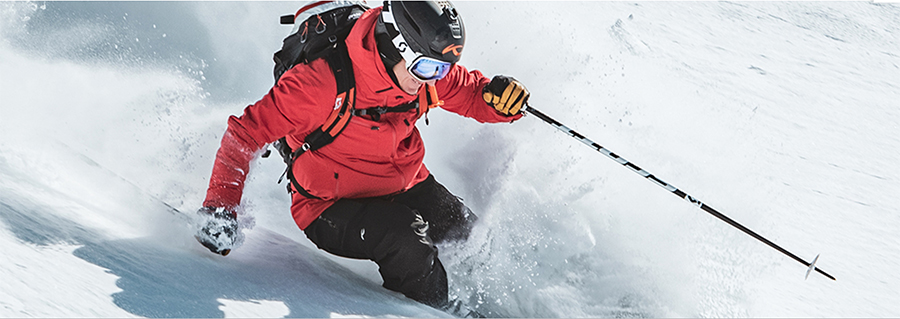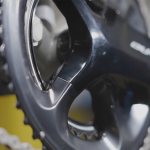By Eric Smith
<span style="color: #999999;">Although Acushnet Holdings Corp.’s $28.7 million acquisition of premium ski and golf apparel brand Kjus didn’t happen until the third quarter, CEO David Maher spent plenty of time on Wednesday’s Q2 earnings call discussing the company’s vision for its newest asset.
Maher helped shed some light on how Fairhaven, MA-based Acushnet—parent of Titleist and FootJoy—plans to grow the brand and increase the company’s top line through Kjus’ product offerings in both ski and golf.
Acushnet announced it had acquired Boulder, CO-based Kjus (pronounced shoos) in July, but the origins of the deal date back a few years when Acushnet executives said the brand first caught their eye. They began seeing Kjus golf apparel in numerous specialty shops and clubhouses—and they were impressed.
As they explored the brand’s history, they learned that the Kjus brand was created after brand namesake Lasse Kjus’ epic performance at the 1999 World Ski Championships, where he medaled in each of the event’s five disciplines. The brand was co-founded with Didi Serena with “a vision to make the most technologically advanced skiwear,” Acushnet said.
About a decade later, the brand entered the golf outerwear and apparel markets, and the brand’s product mix is now about 60 percent ski and 40 percent golf.
“Kjus’ origin is in technical premium ski where they have earned a loyal following with discerning skiers who place a premium on performance and styling,” Maher said. “Kjus is a proven leader in fabric innovation and the company has done a great job translating ski technologies and material innovation into the golf wearable space.”
Click here to read more about Acushnet’s acquisition of KJUS.
That entrance into the golf apparel space was a smart play for Kjus, which Maher said is a roughly $4 billion industry “comprised of some 300 different and mostly regional brands.” That’s a market where Acushnet truly believes it can take share with Kjus, though ski will continue to be an important category moving forward.
“All-in, the golf business, inclusive of Kjus, will still represent close to 99 percent of Acushnet’s revenues and the Kjus ski business will be a small but very important segment for us, which we intend to continue to operate with excellence,” said CFO Tom Pacheco. “We do see faster growth in golf than ski, which is really consistent with the size of the market operation with the addressable golf opportunity being three times the size of the addressable ski opportunity.”

Acushnet also noted that ski sales skew toward the second half of the season, which should provide a nice balance for the company’s annual revenue. Equally important, Kjus now gives Acushnet a third asset in its portfolio to help capture share in that massive market.
“This acquisition strengthens Acushnet’s position in this sizable product category as we now approach this market opportunity with three distinct and complementary brands and product strategies,” Maher said. “FootJoy is our largest and most globally oriented performance position line. Titleist Apparel is our premium performance play focused on the Korean, Japanese golf market opportunities. And now Kjus presents us with a range of technical performance opportunities across geographies, style preferences and premium price points.”
As Acushnet noted when the deal was announced last month, it will continue to run Kjus’ operations from its global and North American headquarters in Hünenberg, Switzerland, and Boulder, CO. The ski and golf divisions will be run by long-time company leaders Nico Serena and Brooke Mackenzie, respectively. Luke Reese, who helped establish the Kjus golf business, and Serena will continue their involvement with the company as special advisors.
Broadly speaking, Acushnet plans “to fortify the brand’s entrepreneurial spirit and category focus, invite increased investment in product innovation and design, and take advantage of Acushnet’s global reach and scale,” Maher said. “We think Kjus is a great fit for Acushnet and look forward to helping the Kjus team further develop this compelling growth opportunity.”
As for the company’s second-quarter performance, Acushnet missed on both revenue and earnings in the period. The company reported consolidated net sales for the quarter decreased by 3.3 percent to $462.2 million, shy of estimates by $22.7 million.
On a constant currency basis, consolidated net sales were down 0.8 percent resulting from a decrease of $8.4 million in net sales of Titleist golf clubs primarily related to lower sales volumes of irons and wedges, partially offset by higher sales volumes of TS drivers and fairways, as well as an increase of $4.8 million in net sales of Titleist golf balls partly driven by sales of the company’s latest-generation Pro V1 and Pro V1x golf balls.
The U.S. was a bright spot for the company. Consolidated net sales in the U.S. increased by 1.4 percent in the quarter, driven by an increase of $3 million in net sales of Titleist golf balls and an increase of $1.7 million in net sales of Titleist golf gear, partially offset by a decrease of $1.8 million in Titleist golf clubs.
However, net sales in regions outside the U.S. were down 8.7 percent and down 3.3 percent on a constant currency basis. On a constant currency basis, Japan’s sales declined 13.2 percent and EMEA sales dipped 5 percent while Korea sales ticked up 5.5 percent.
Sales declines in Japan and EMEA were primarily due to decreases in sales of Titleist golf clubs and FootJoy golf wear, mainly in the footwear category. In Korea, the increase in net sales was primarily due to an increase in Titleist gear sales across all categories.
Net income decreased by 3.5 percent to $38.5 million, and adjusted EBITDA was $75.7 million, down 4.7 percent year over year. Adjusted EBITDA margin was 16.4 percent for the second quarter versus 16.6 percent for the prior-year period.
Click here to read more about Acushnet’s second-quarter earnings.
Here are the segment specifics from Acushnet’s Q2 earnings report:
- Titleist golf balls: Sales increased 0.6 percent (2.8 percent on a constant currency basis).
- Titleist golf clubs: Sales decreased 9.2 percent (7.1 percent on a constant currency basis) primarily from lower sales volumes of irons and wedges which were in their second model year. The decrease was partially offset by higher sales volumes of TS drivers and fairways, which were launched in the third quarter of 2018.
- Titleist golf gear: Sales increased 2.2 percent (5.2 percent on a constant currency basis) primarily due to by sales volume increases in the company’s golf bag, Titleist glove and travel gear categories.
- FootJoy golf wear: Sales decreased 4.5 percent (2 percent decrease on a constant currency basis) primarily as a result of lower sales volumes and average selling prices (ASPs) in the footwear category, partially offset by higher sales volumes and average selling prices in apparel.
The company expects consolidated net sales to be approximately $1.655 billion to $1.685 billion in 2019; on a constant currency basis, they are expected to be in the range of up 2.8 percent to 4.7 percent. Also, Acushnet expects adjusted EBITDA to be approximately $235 to 245 million.
Photos courtesy Kjus
[author] [author_image timthumb=’on’]https://s.gravatar.com/avatar/dec6c8d990a5a173d9ae43e334e44145?s=80[/author_image] [author_info]Eric Smith is Senior Business Editor at SGB Media. Reach him at eric@sgbonline.com or 303-578-7008. Follow on Twitter or connect on LinkedIn.[/author_info] [/author]
















